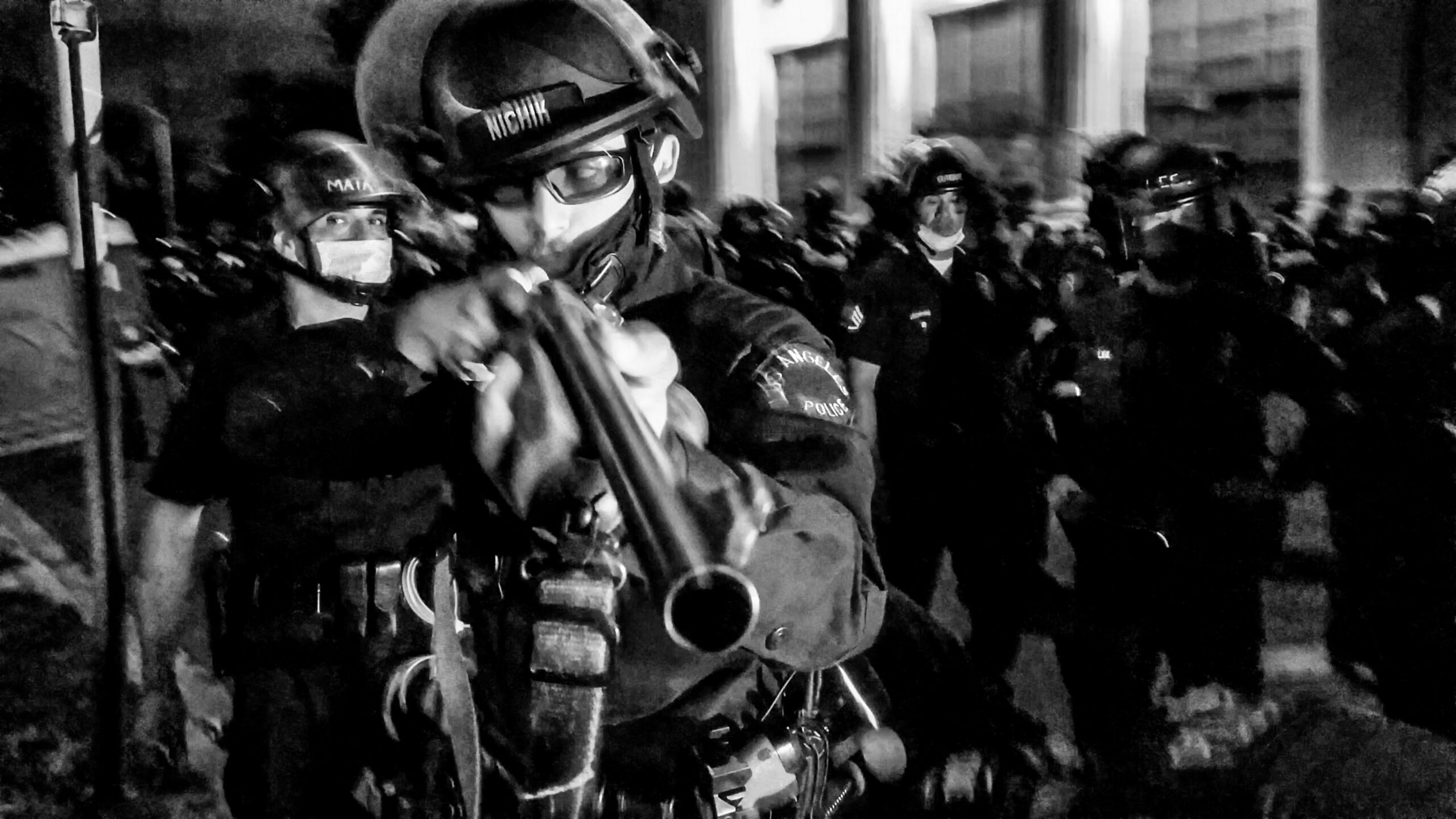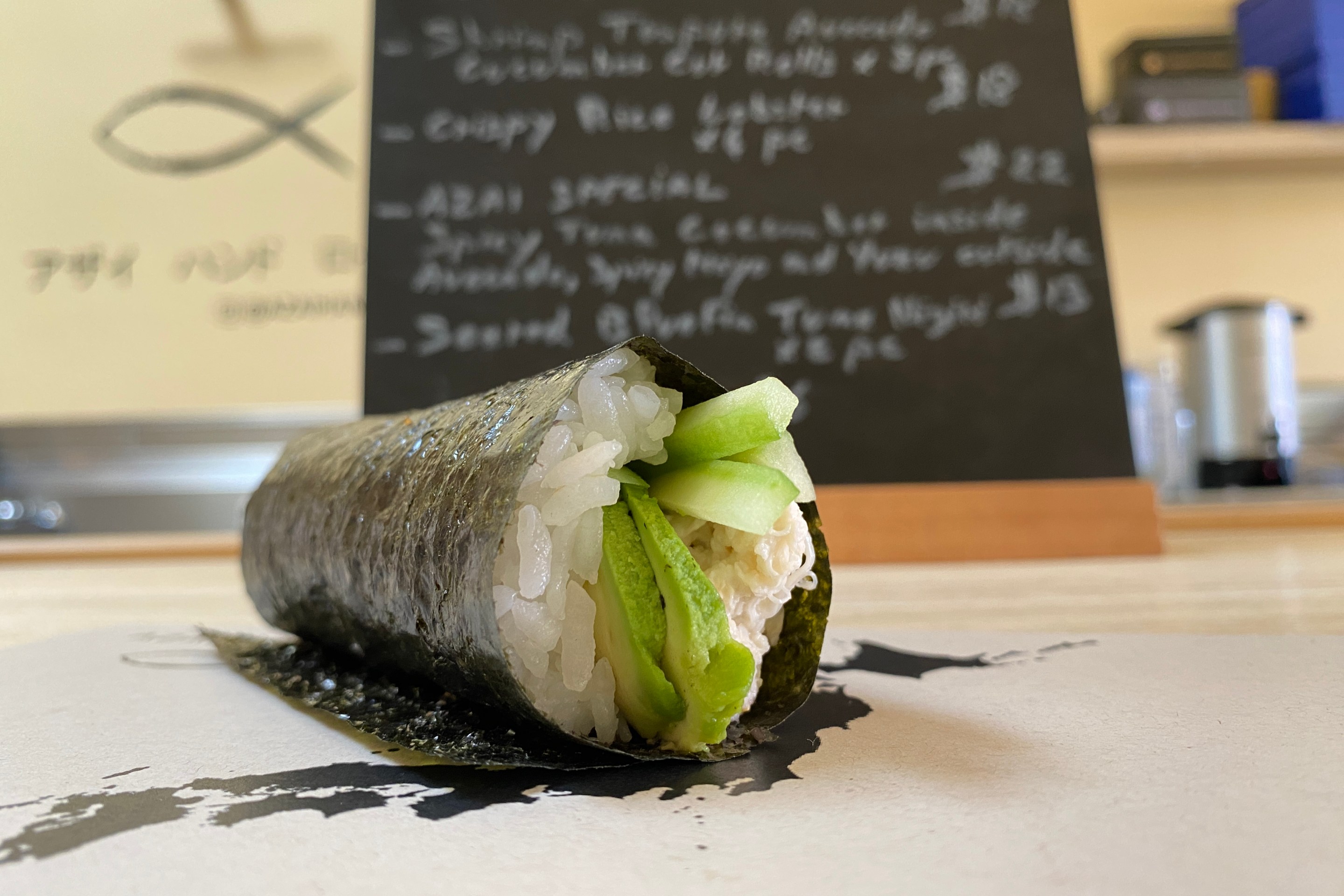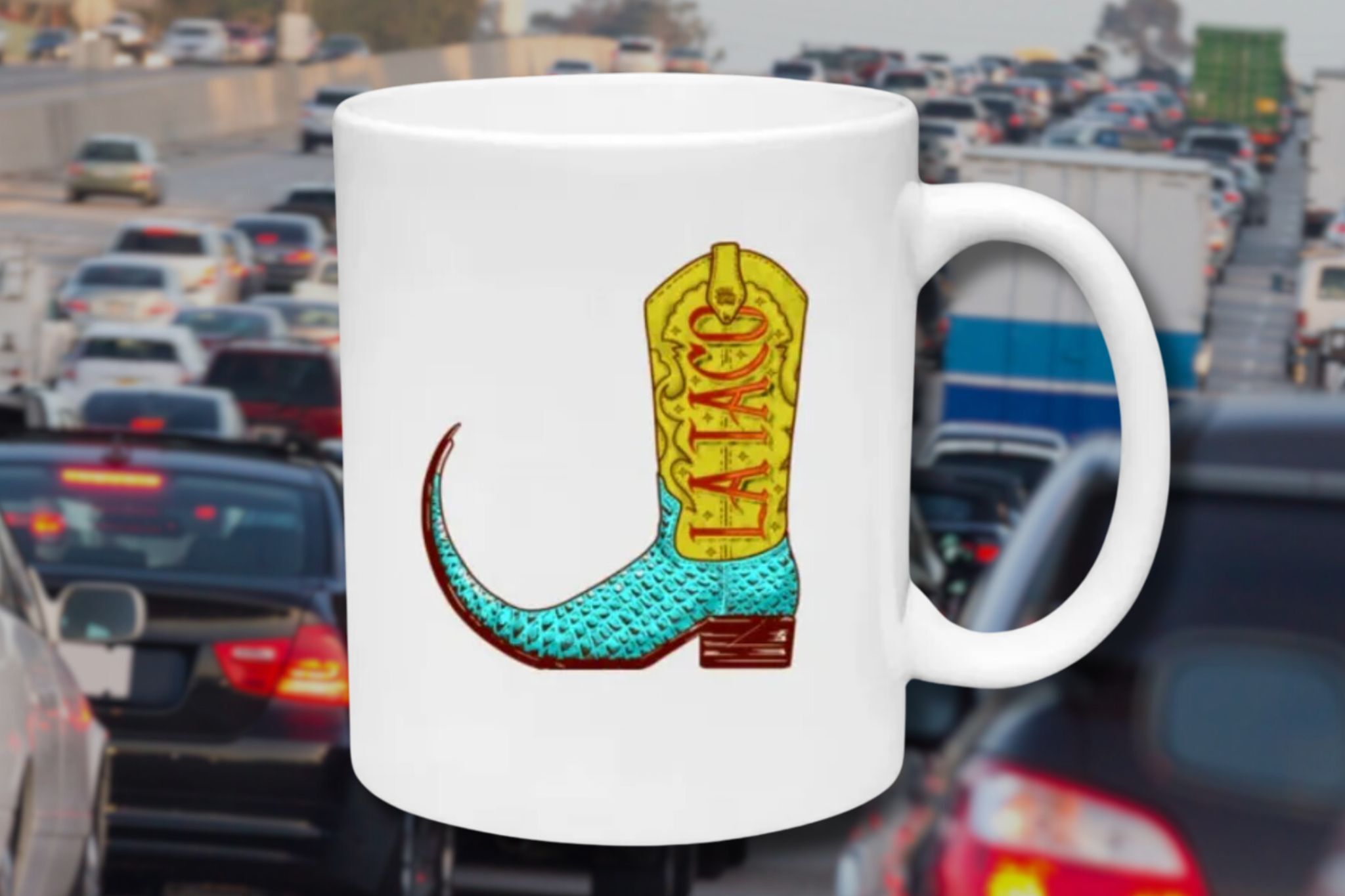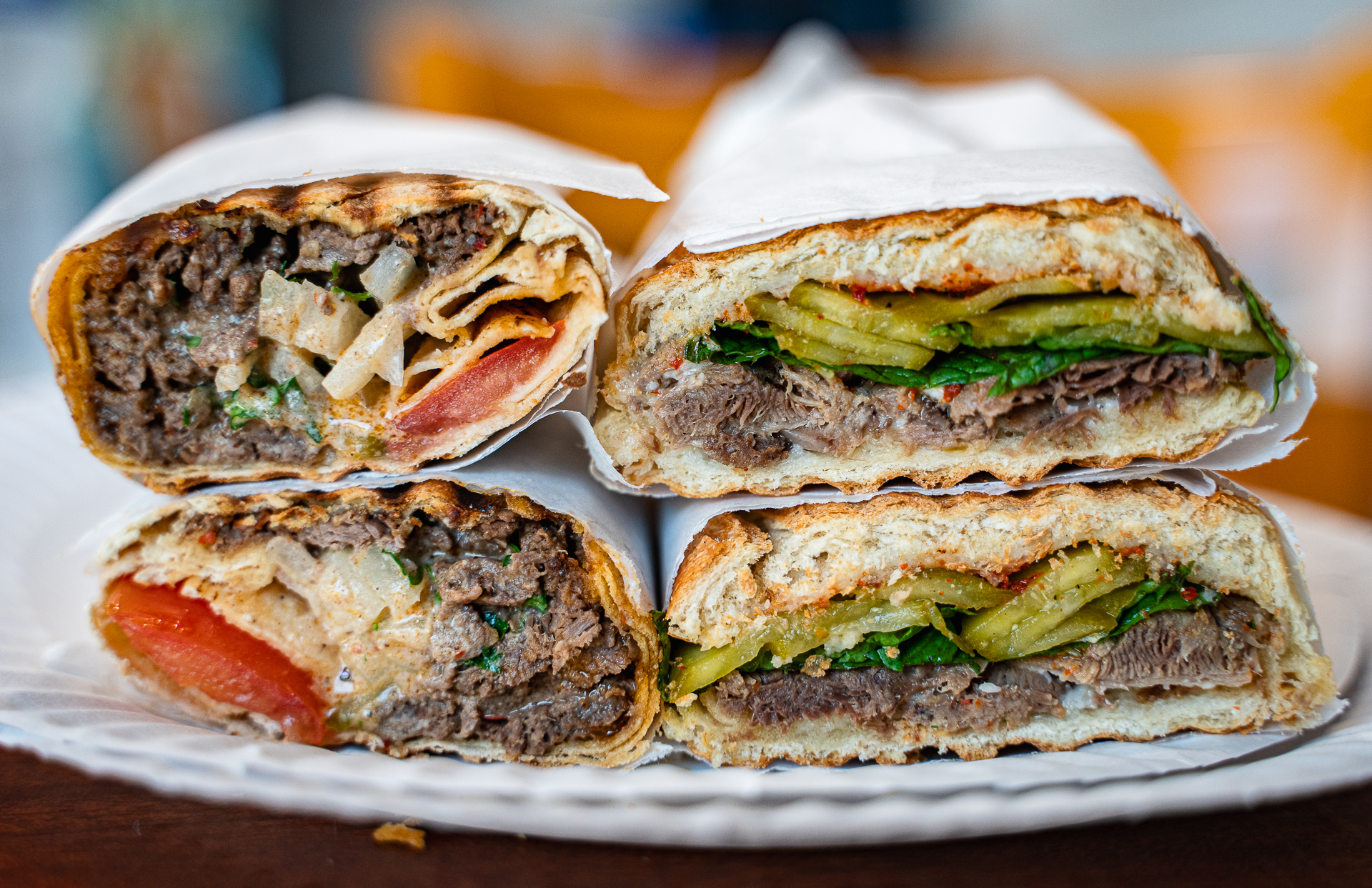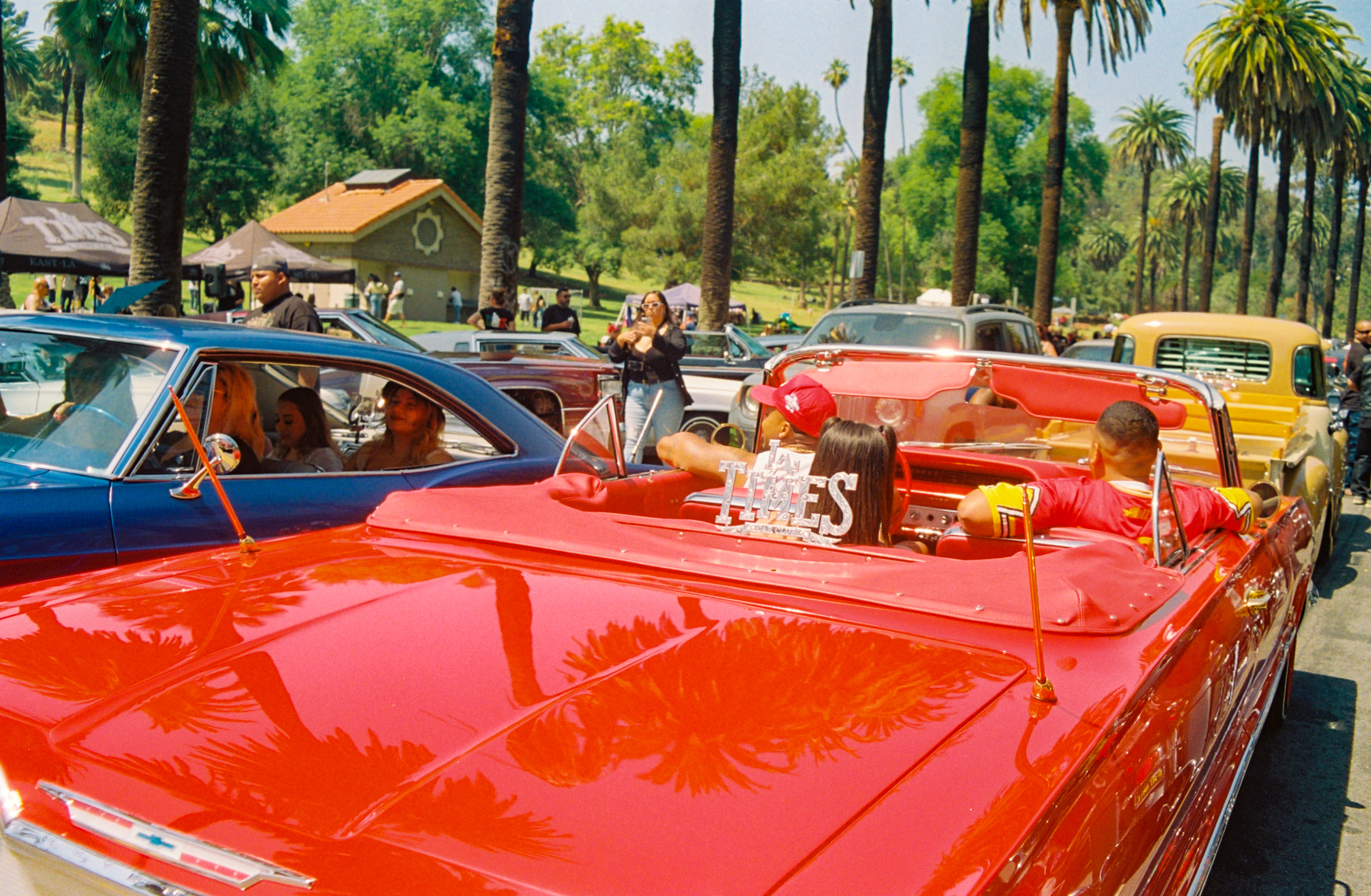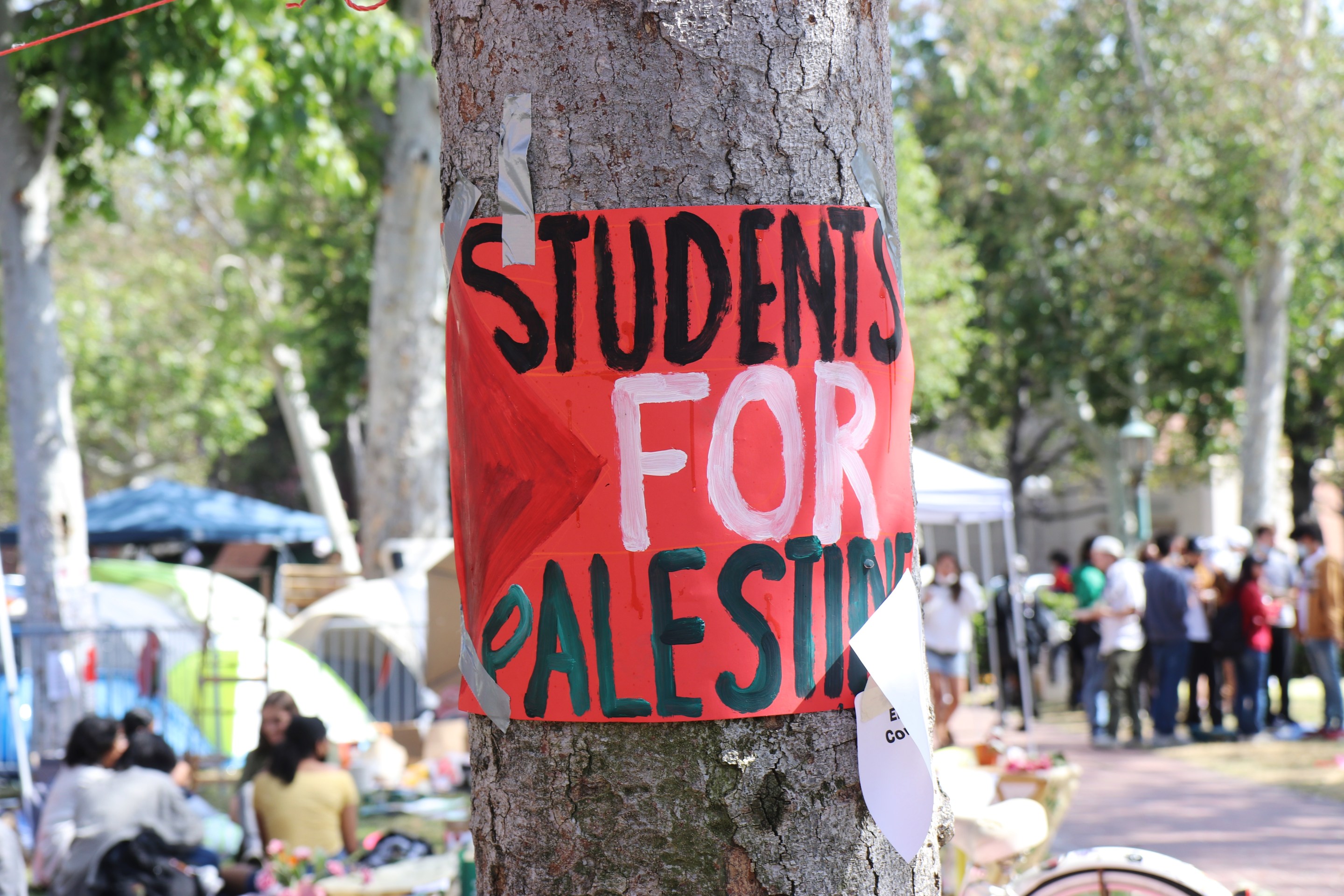[dropcap size=big]M[/dropcap]ost people come home to credit card offers, bills, and coupons in their mailbox. Instead, one day last March, I came home to a suspicious envelope from the Los Angeles City Attorney’s Office informing me that I was being charged with allegedly failing to disperse (a misdemeanor punishable by up to six months in jail and a fine of up to $1,000) for an incident that occurred four months prior, while I was covering the Dodgers World Series celebrations for L.A. TACO. “Failure to appear at the City Attorney hearing may result in the filing of a criminal complaint against you,” the note read.
The letter refers to what started as celebrations but later turned into tense standoffs between police and crowds—first in Echo Park and later in DTLA—after the Dodgers secured their seventh title. While covering the unrest in downtown, a group of Los Angeles police officers pinned me to a car trapped between dozens of Dodgers fans and an entire intersection’s worth of cops while I filmed with the camera on my phone. The attack was swift, and for a moment, I thought I might get run over. Wedged between the vehicle and the cops, officers yelled “stop the car, stop the car” at the driver as they inched forward, just before I went to the ground. Eventually, I was able to muster the words that ended the attack: “I’m a member of the press.”
A group of LAPD officers just broke my camera mic, tackled me to the ground and beat me with their batons, after I identified myself as a journalist multiple times. @LATACO pic.twitter.com/2VaB4sq8IJ
— Lexis-Olivier Ray (@ShotOn35mm) October 28, 2020
The fall left my camera lens and microphone damaged and myself—bruised and battered.
When the police attack you while working as a journalist, you don’t get to yell at them or fight back. You continue to do your job.
After I identified myself as a reporter, the cops backed off and my friend and fellow TACO contributor, photojournalist Brian Feinzimer, came to my side to help me up. Shortly after, I posted the video on Twitter, and it quickly went viral. For the rest of the night, I stayed close to Brian and our friend Chris Monterrosa, another freelance photojournalist, as we continued to cover the melee. When the police attack you while working as a journalist, you don’t get to yell at them or fight back. You continue to do your job.
I wasn’t arrested or cited that evening, and I don’t recall being identified by a police officer. Still, four months later, in early March, the notice from the city attorney unexpectedly appeared at my front door. A subsequent L.A. Times review of police and city attorney records found that out of hundreds of people out on the streets that night. I was the only person the city attorney sought to charge with failing to disperse.
During a brief hearing over the phone that was scheduled a few days after I received the notice, I was informed that the case would “remain open for the statute of limitations” (a year from Oct 28, 2020). During that time, any alleged “repeat offenses” could result in the old case being filed in addition to any new cases. While almost every lawyer I spoke to described this as the best possible outcome in this situation, as an investigative reporter that’s highly critical of law enforcement, the whole ordeal threw me into a demoralizing spiral.
For seven months, I lived in fear
For a while, I was afraid to leave my house. Meanwhile, my mind raced through all the possible ways law enforcement might continue to retaliate against me. At times I feared for my life. A few weeks after the attack, I remember going through all of the possibilities of what might happen to me physically, and at one point, I thought to myself, What if they kill me? Looking back, that might have been paranoia talking, but it didn't seem that far-fetched. People get killed by police for reaching for their waistbands or holding an object that the police interpret as a gun or weapon all the time. I felt like I was a target. After all, I regularly spent my early mornings and late evenings reviewing body camera footage of primarily people of color being killed by law enforcement. And it didn’t take long for those fears to be amplified.
A week after my hearing, while covering another protest in Echo Park, myself, along with dozens of my colleagues and hundreds of protestors, were detained. After being held for more than two hours, I narrowly avoided being cuffed and loaded onto a bus when presenting my press pass to an LAPD officer. During the detainment, a police officer that has only been with the department for a few years pointed a Remington rifle at my chest at point-blank range. The rifle was loaded with less-than-lethal munitions, but at close range, those weapons can be fatal. While me and my colleagues were detained on one street, my colleague Monterosa from earlier was hit in the abdomen and right arm at close range with a less-lethal munition around the corner.
Monterosa and I are not alone. An alarming 422 journalists were allegedly assaulted by law enforcement during the year that George Floyd was killed, according to the U.S. Press Freedom Tracker. By comparison, less than 50 journalists reported being assaulted the year before. And in California, the Los Angeles Press Club identified more than 50 instances of “apparent police misconduct toward people who should have been recognized as journalists.”
As a result of my experiences, I took a break from working on certain projects and walked away from others altogether. I questioned my own ability to report on law enforcement and protests going forward safely. I had tough conversations with loved ones and mentors about keeping a low profile or possibly switching beats. Unexpected knocks at my door or phone calls from numbers I don’t recognize still sometimes send me into a panic. And even to this day, I find myself cracking open my front door nervously to see if there’s another letter at my doorstep.
Thankfully, some of that fear and anxiety subsided today.
It’s been a year since the police attacked me, which means the statute of limitations on the charges that the city attorney dangled over my head for more than half a year has expired. For seven months, I worried that I'd return home from another walk with the dog to find a new notice. Today I breathe a bit easier.
I still have questions, though. Like, who were the LAPD officers that attacked me? Which LAPD officer took time off from work to file a report against me a week later? Why did the city attorney pursue the case but not take it to trial? What was the point of all this? That’s the question that stands out to me the most—what was the point? Was this meant to have a chilling effect on an investigative reporter like me known for holding law enforcement accountable? As difficult as it is for me to admit, if that was their intention, it worked.
Unexpected knocks at my door or phone calls from numbers I don’t recognize still sometimes send me into a panic. And even to this day, I find myself cracking open my front door nervously to see if there’s another letter at my doorstep.
Watching the Dodgers nearly pull a repeat performance earlier this month was bittersweet. There’s nothing like seeing our city win, especially at a time when people are experiencing so much loss. But post-season baseball also evokes unpleasant memories of what happened a year ago. I hate to admit it, but there’s a part of me that’s happy the Dodgers didn’t advance in the series. I didn’t want to see a repeat of the Lakers and Dodgers celebrations last year when dozens of people were arrested and less-than-lethal munitions severely injured several innocent bystanders.
On the evening that the Dodgers blew out The Braves, and it looked like they might have a chance to take the series, my editor received word that a complaint filed on my behalf with the LAPD nearly a year ago was “unfounded,” meaning "the acts alleged did not occur" in the manner described. The verdict was unsurprising but, at the same time, disappointing.
Thankfully, reporters in California have something to celebrate. Earlier this month, Governor Gavin Newsom signed SB98: A bill that grants journalists the right to continue covering protests and demonstrations after giving dispersal orders. Had the governor approved an earlier version of the bill that similarly sought to protect reporters covering protests, I might not have been charged in the first place.
But going forward, hopefully, no journalist will go through what I endured.
